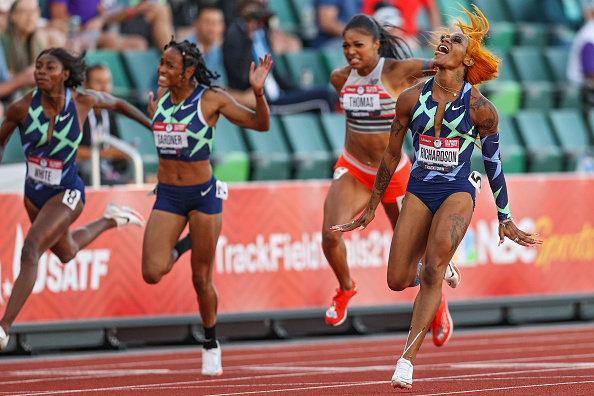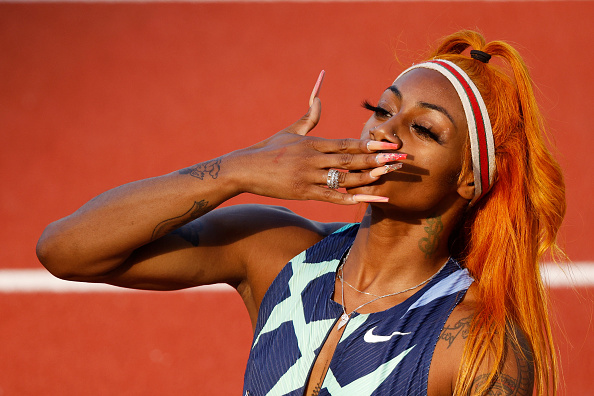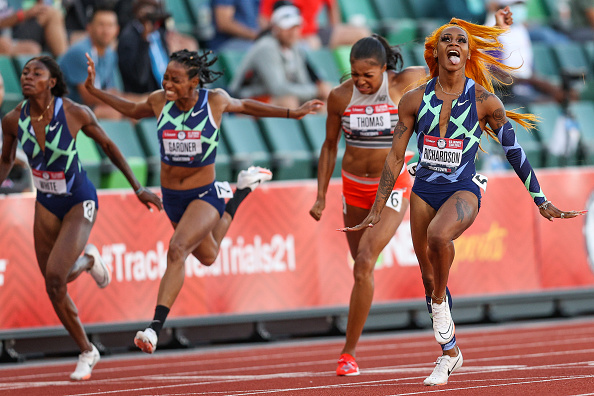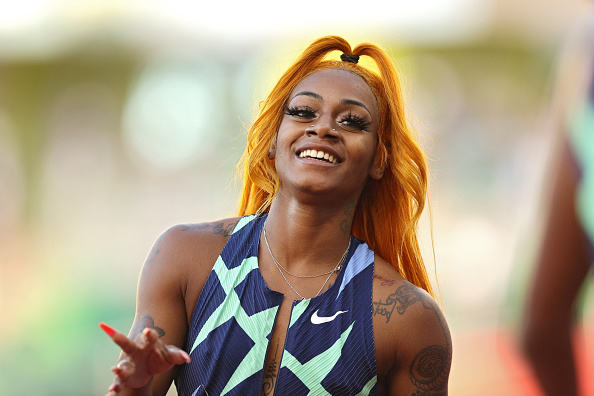Sprinter Sha’Carri Richardson will miss Olympic 100m race after marijuana test
(NewsNation Now) — Standout U.S. sprinter Sha’Carri Richardson cannot run in the Olympic 100-meter race after testing positive for a chemical found in marijuana.
The positive test came at the U.S. Olympic trials last month where Richardson established herself as a gold medal contender by winning the 100m in 10.86 seconds. Since she tested positive at the Olympic trials her result is erased. Fourth-place finisher Jenna Prandini is expected to get Richardson’s spot in the 100.

Richardson accepted a 30-day suspension that ends July 27, which would be in time to run in the women’s relays. USA Track and Field has not disclosed plans for the relay.
“The rules are clear, but this is heartbreaking on many levels; hopefully, her acceptance of responsibility and apology will be an important example to us all that we can successfully overcome our regrettable decisions, despite the costly consequences of this one to her,” U.S. Anti-Doping Agency CEO Travis Tygart said.
The latest on the Tokyo Olympics.
On Thursday, as reports swirled about her possible marijuana use, Richardson put out a tweet that said, simply: “I am human.” On Friday, she went on TV and said she smoked marijuana as a way of coping with her mother’s recent death.
“I was definitely triggered and blinded by emotions, blinded by badness, and hurting, and hiding hurt,” she said on NBC’s “Today Show.” “I know I can’t hide myself, so in some type of way, I was trying to hide my pain.”
Richardson had what could have been a three-month sanction reduced to one month because she participated in a counseling program.
Richardson said if she’s allowed to run in the relay “I’m grateful, but if not, I’m just going to focus on myself.”
While not weighing in on her prospects for the relays, USATF put out a statement that said her “situation is incredibly unfortunate and devastating for everyone involved.”
Marijuana is banned by the World Anti-Doping Agency but if athletes can prove that their ingestion of the substance was unrelated to sports performance then a suspension of three months rather than the usual four years is imposed.
If an athlete is willing to undertake an approved treatment program in collaboration with their national anti-doping body then the ban can be reduced to one month.
After the London Olympics, international regulators relaxed the threshold for what constitutes a positive test for marijuana from 15 nanograms per milliliter to 150 ng/m. They explained the new threshold was an attempt to ensure that in-competition use is detected and not use during the days and weeks before competition.
Though there have been wide-ranging debates about whether marijuana should be considered a performance-enhancing drug, the USADA makes clear on its website that “all synthetic and naturally occurring cannabinoids are prohibited in-competition, except for cannabidiol (CBD),” a byproduct that is being explored for possible medical benefits.
Now, Richardson is out, as well, denying the Olympics of a much-hyped race and an electric personality. Richardson raced with flowing orange hair at the trials and long fingernails.
Richardson put on an eye-opening show at the Olympic trials June 19 in Eugene, Oregon — blowing away the field in the 100-meter semis in a wind-aided 10.64 seconds, then again in the final in 10.86.
The Texan was aiming to become the first American woman to win the Olympic 100m title since Gail Devers in 1996 after posting 10.72 seconds in April – one of her five runs under 11 seconds this season.
The victory had track fans buzzing over a possible showdown with the Jamaican world champion, Shelly-Ann Fraser-Pryce.
The Associated Press and Reuters contributed to this report.















